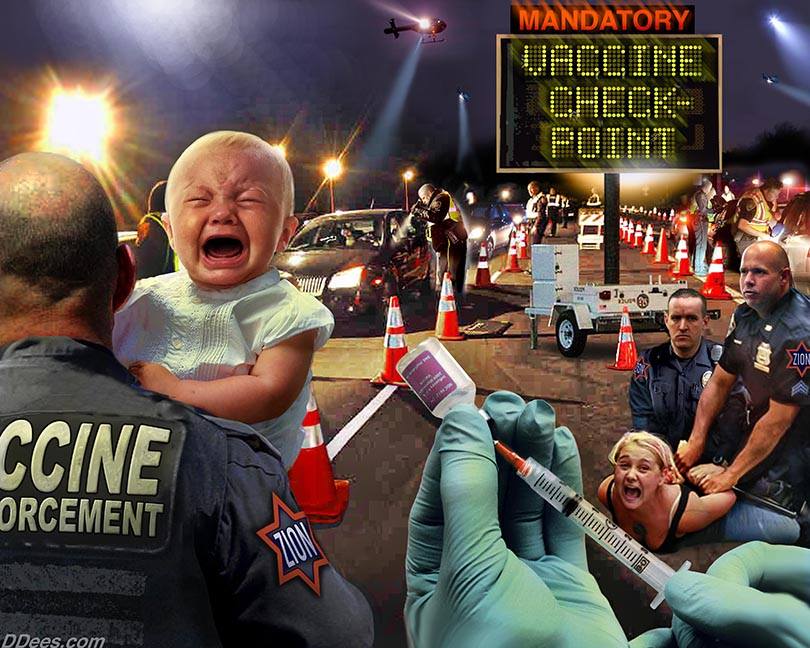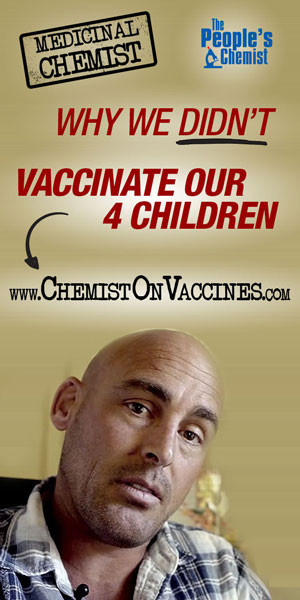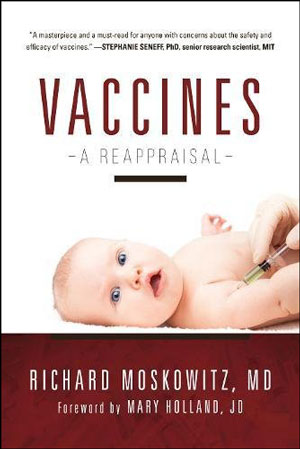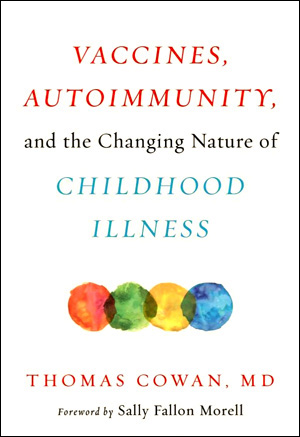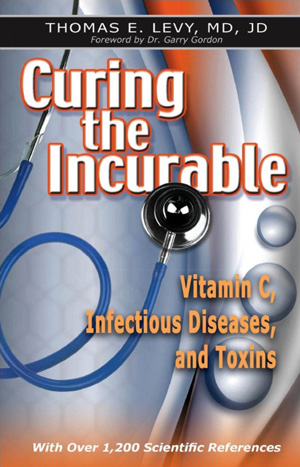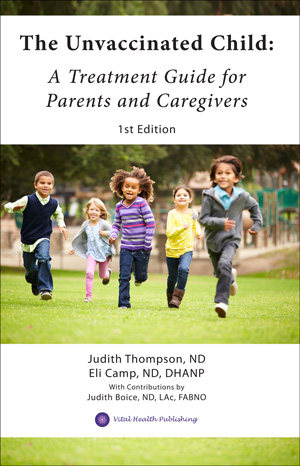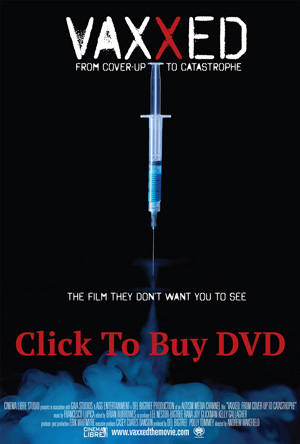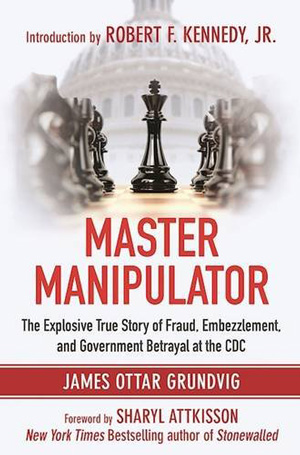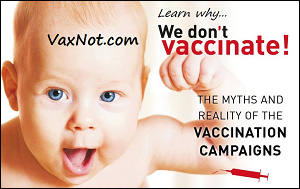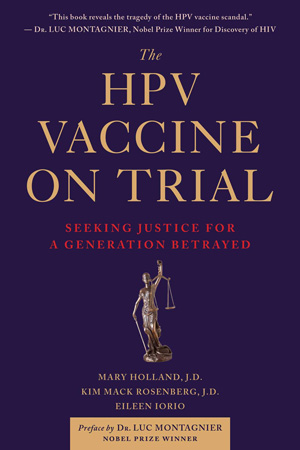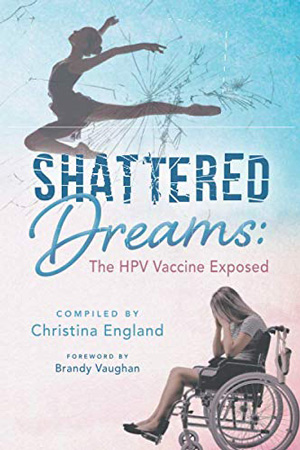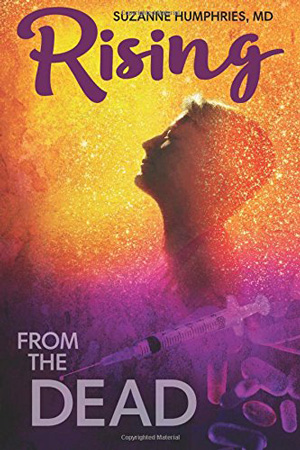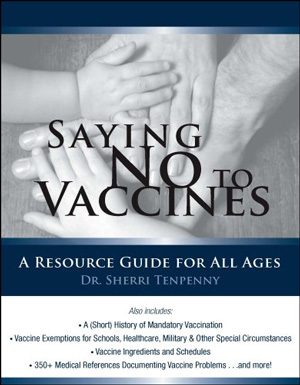CDC Proposes Indefinite Detainment, Forced Vaccination and Unlimited Surveillance For Travelers
UPDATE
CLICK HERE to read the CDC’s final ruling on this proposed rule.
Tell The CDC NO WAY!
We have until October 14th, 2016 to give the CDC feedback on their proposed rule. Go to www.regulations.gov/comment?D=CDC-2016-0068-0001 and tell them what you think!
CLICK HERE to send a pre-formatted automatic letter to your elected officials protesting this proposal.
By Attorney Chiara King
The CDC Seeks An Unprecedented Power Grab To Permanently Detain Americans
The Centers for Disease Control and Prevention (CDC) has issued a Notice of Proposed Rulemaking to amend its quarantine regulations. These Proposed Rules will allow CDC and its agents to perform MANDATORY public health screenings on any man, woman, or child who is traveling interstate via aircraft, train, or bus, and will allow CDC to apprehend and DETAIN individuals on the basis of such screenings. These Proposed Rules will greatly expand CDC’s power, which already includes the ability to apprehend and detain people for certain “quarantinable” communicable diseases, where the President controls which diseases are deemed “quarantinable” by Executive Order.
Mandatory Public Health Risk Assessments
The CDC seeks to perform mandatory public health risk assessments everywhere that people “queue” with others engaging in interstate travel. Essentially, CDC believes that the idea of warrantless, suspicionless airport searches should extend to mandatory physical exams for communicable diseases. The Notice makes clear that consent will be implied by a person’s presence in a given location, and cannot be revoked by simply walking away. CDC seeks to apprehend anyone who fails the mandatory screening or appears to be an “ill person,” which would include having a temperature of 100.4 degrees Fahrenheit or greater, being warm to the touch, having glassy eyes, having a rash, going to the restroom numerous times, or simply being “obviously unwell.” A person could also be apprehended without physical symptoms, so long as the officer has some reason to believe that the person was exposed to a quarantinable communicable disease.
Apprehension Justified For Possibly Being Sick
A person may be apprehended before they are communicable, if the disease might cause a public health emergency if transmitted to others. In its proposed new definition of “public health emergency” CDC seeks to include any disease (not just quarantinable disease) that has “documented or significant potential for regional, national, or international communicable disease spread.” CDC thus seeks to apprehend individuals on the basis of mere transmissibility of disease, regardless of the relative dangerousness, or non-dangerousness, of that disease.
Unlimited Detention With No Legal Recourse
Once apprehended, an individual must wait for the issuance of a Federal order. The individual is not free to leave, nor free to discontinue his or her discussion with the public health officer. CDC anticipates a maximum wait time of 72 hours, but admits that there is no maximum time period in the actual Rules. There is no mention of whether the apprehended individual could contact the outside world; where he or she would be kept while awaiting Federal orders; or whether an apprehended child’s parents would be permitted to be present. There is also no requirement for a medical examination to take place to confirm the presence of disease prior to the issuance of a Federal order.
Forced Agreement To Treatment, Including Vaccination
The CDC also seeks to introduce the concept of an “agreement,” where a person under Federal order would sign his or her agreement to whatever health measures CDC deems necessary, including vaccination. CDC reserves its right to compel these measures without the quarantined person’s actual agreement, however. People who sign these CDC agreements will also indicate their understanding that failing to abide by the agreement’s terms will lead to Federal criminal penalties. Unwary people could thus easily subject themselves to the entire recommended CDC vaccine schedule on pain of Federal prosecution.
No Legal Protection For Citizens
A person caught up in this web of Federal bureaucracy would face an undefined legal nightmare, under active detainment and threat of force. The CDC has an indefinite time to produce a Federal order, and then CDC conducts an internal review 72 hours after the order is issued. It is only here – after potentially six days of detention – that an individual could protest their confinement on the simple grounds of mistaken identity or not being in contact with an infected individual. Even at this point, called a medical review, there is still no opportunity for an individual to seek the assistance of the courts, because such review is intended as medical fact-finding only.
Having The Measles Could Mean Permanent Detention Or Vaccination
Considering that a disease’s potential to create a public health emergency is immediate grounds to apprehend and detain affected individuals under the Proposed Rules, it is especially noteworthy that CDC considers “every case of measles in the United States [to be] a public health emergency because of its extremely high transmissibility.” Thus, measles is characterized in a way that explicitly justifies apprehension, even though measles is not a quarantinable communicable disease. The only way that this makes sense is if CDC’s imminent intent is to advise the President to issue an Executive Order declaring measles to be a quarantinable disease. It bears consideration that this is the very point of these Proposed Rules – to intimidate anyone who dares forgo the MMR vaccine with apprehension and detention.
An Unprecedented Power Grab For Full Police Power Over Citizens
The CDC is proposing an unprecedented power grab without even the barest of constitutional protections. If the CDC gets its way, it is anyone’s guess how many people will be apprehended for having a head cold, the flu, or food poisoning during travel, and end up getting every last one of CDC’s recommended vaccines, on pain of Federal prosecution, for daring to travel interstate while sick.
Tell The CDC NO WAY!
We have until October 14th, 2016 to give the CDC feedback on their proposed rule. Go to www.regulations.gov/comment?D=CDC-2016-0068-0001 and tell them what you think!
Continue reading the full synopsis by attorney Chiara King if you’d like a more in-depth understanding and analysis of why these newly proposed CDC regulations are dangerous to Americans and could lead to forced vaccination or permanent detention for all:
EXPANDED OVERVIEW OF CDC’s PROPOSED POLICE POWERS
Introduction
On August 15, 2016, the Centers for Disease Control and Prevention (CDC) in the Department of Health and Human Services (HHS) issued a Notice of Proposed Rulemaking (Proposed Rules, or Notice) to amend its quarantine regulations. These Proposed Rules are extraordinarily concerning, as they will permit the Federal government, through its executive agencies and their agents, to deprive law-abiding individuals of their liberty on the basis of being “warm to the touch” or appearing “obviously unwell.” In an unbelievable demonstration of authoritarian arrogance, HHS/CDC wants to perform mandatory public health screenings on any man, woman, or child who dares to exercise their freedom of movement by engaging in interstate travel via aircraft, train, or bus. Incredibly, HHS/CDC also seeks the ability to apprehend and indefinitely detain individuals on the basis of such screenings. These Proposed Rules are devoid of any meaningful protective mechanisms, and would therefore put every American traveler, even a child traveling alone, at risk of being treated like an enemy of the state and being catapulted into a legal no-man’s land of Federal custody and coerced medical treatment – all in the name of “public health.”
Current State of the Law
HHS/CDC is authorized by Federal statute, sections 361 and 362 of the Public Health Service Act (42 U.S.C. 264, 265), to promulgate regulations that, in the judgment of the Secretary of the HHS, are necessary to prevent the introduction, transmission, or spread of communicable diseases from foreign countries into the United States, or from one state to another. Section 361(a) authorizes the Secretary of HHS to promulgate and enforce regulations to prevent the spread of all communicable diseases that may affect human health, and includes such measures as fumigation, sanitation, animal destruction, and pest extermination. Section 361(b) authorizes the “apprehension, detention, or conditional release” of individuals for the purpose of preventing the introduction, transmission, and spread of certain specified “quarantinable” communicable diseases.
To qualify as “quarantinable,” a disease must be designated as such by an Executive Order of the President. Quarantinable diseases are currently limited to cholera, diphtheria, infectious tuberculosis (TB), plague, smallpox, yellow fever, viral hemorrhagic fevers (such as Marburg, Ebola, Lassa fever, and Crimean-Congo), severe acute respiratory syndromes, and influenza caused by novel or re-emergent influenza viruses that are causing, or have the potential to cause, a pandemic. See Executive Order 13295 (April 4, 2003), as amended by Executive Order 13375 (April 1, 2005), and Executive Order 13674 (July 31, 2014). For an interstate traveler to qualify for apprehension, examination, and detention under current law, health officials must reasonably believe that the individual is infected with a quarantinable communicable disease in a qualifying stage. “Qualifying stage” can mean in a communicable stage, or it can mean in “a precommunicable stage, if the disease would be likely to cause a public health emergency if transmitted to other individuals.” See 42 U.S.C. 264(d)(1-2). Health officials must also reasonably expect that the individual is moving or about to be moving between states, or constitutes a probable source of infection to others moving between states. Violation of regulations enacted under 42 U.S.C. 264 and 265 carry criminal sanctions, including imprisonment.
Mandatory Public Health Assessments
One of the most startling things HHS/CDC seeks to do under the Proposed Rules is to conduct mandatory public health risk assessments in every location where individuals “queue” with others who may be engaging in interstate travel. The sole legal justification HHS/CDC offers for this patently offensive idea is its belief that “administrative” searches at airports, which allow for warrantless searches of all carry-on luggage without individualized suspicion, should extend to the physical examination of members of the public for communicable diseases. These mandatory public health assessments will include examination of the ear, nose, and mouth; temperature assessment; thermal imaging; external palpation; and other so-called non-invasive procedures. Notably, the Proposed Rules do not require that these exams be performed by a licensed health care worker, but instead allow “another individual with suitable training” to suffice. HHS/CDC’s stated intent for these screenings is “to provide for mandatory public health risk assessment and management at ports or other locations where individuals may gather to engage in interstate traffic.” This wording explicitly includes train stations and bus depots, but the term “other locations” is vague enough to include other places where large numbers of interstate and/or international visitors congregate, perhaps even for recreation. HHS/CDC makes no mention of the dozens of potential complications involved in authorizing its agents to lay hands on the public, including but certainly not limited to: the examination of persons with autism or sensory processing disorders; religious objections to examination; language barriers leading to misunderstanding; children refusing or being asleep; how examiners would distinguish serious illnesses from cold viruses, sinus infections, and ordinary flu; and many other issues. The consequences of refusal may be inferred from the Notice’s citing of a case related to airport security, United States v. Herzbrun, which held “that a passenger consents to an airport security search by presenting himself/herself for boarding and that such consent may not be revoked by simply walking away.” 723 F.2d 773, 775 (11th Cir. 1984).
Under the Proposed Rules, individuals undergoing a mandatory public health assessment would be required to provide “contact tracing” information to the examining authorities, such as the individual’s U.S. and foreign addresses, telephone numbers, email addresses, current travel destination, health status, and history of travel. The precise definition of “health status” is not offered in the Notice, but it very likely would include vaccination status, as this information is already routinely collected in other high-volume health-care scenarios like emergency rooms. This contact tracing information will be collected during what HHS/CDC considers to be a simple administrative search, with no prerequisite justification of individualized suspicion, warrant, or probable cause being necessary; there is thus no discernible limit to how far public health agents could press in their pursuit of personal medical information. Just as standing in line at the airport implies consent for government agents to search one’s luggage, an individual’s mere presence in a particular location will imply consent to a mandatory public health assessment and invasive health-related questioning.
To “facilitate [the] identification of communicable diseases of public health concern,” the Proposed Rules introduce a new definition of “ill person.” That definition includes, but is not be limited to, having a measured temperature of 100.4 degrees Fahrenheit or greater, being warm to the touch, having glassy eyes, having a skin rash, having difficulty breathing or a persistent cough, going to the restroom numerous times, or simply being “obviously unwell.” Persons undergoing chemotherapy, or those with travel sickness, asthma, eczema, emphysema, weak bladders, or irritable bowel syndrome might therefore be at risk of being targeted as potential public health threats by overeager authorities.
The new definition of “ill person” also comes into play in HHS/CDC’s proposed rules about reporting requirements specifically applicable to aircraft operators. If finalized as proposed, the pilot in command of any commercial passenger flight would be required to report the occurrence of any death or ill person directly to HHS/CDC, either through the CDC Emergency Operations Center or through the destination airport’s quarantine station, at least one hour before the flight’s arrival. It bears repeating that the definition of “ill person” includes such vague criteria as being warm to the touch, going to the restroom numerous times, or simply being “obviously unwell.” One can only imagine the additional discomfort of being detained by authorities during travel because of a head cold, food poisoning, or even a severe migraine headache.
Apprehension
If an individual fails to pass the mandatory public health check, it is an extremely short trip to custodial apprehension under the Proposed Rules. The first requirement states “specific, articulable facts upon which a public health officer could reasonably draw the inference that an individual has been exposed, either directly or indirectly, to the infectious agent that causes a quarantinable communicable disease . . .” Note that this condition is written so loosely as to easily permit apprehension and detainment on the basis of rumor, lies, or mistaken identity, even in the total absence of physical symptoms. Second, the public health officer would need to reasonably believe that the individual is in a “qualifying stage” of the quarantinable disease in question. This sounds like a vaguely protective mechanism, but it most certainly is not.
In addition to meaning the communicable stage of a disease, “qualifying stage” can also mean the precommunicable stage of a quarantinable communicable disease, if the disease might be likely to cause a public health emergency if transmitted to other individuals. HHS/CDC seeks to define “public health emergency” as “any communicable disease event as determined by the CDC Director with either documented or significant potential for regional, national, or international communicable disease spread or that is highly likely to cause death or serious illness if not properly controlled . . .” Importantly, this definition of “public health emergency” has a rather subtle either/or component. To qualify as a public health emergency under the proposed definition, a disease must have either “documented or significant potential for regional, national, or international communicable disease spread” or it must be “highly likely to cause death or serious illness if not properly controlled.” In plain English, this means that HHS/CDC seeks to apprehend individuals on the basis of mere transmissibility of disease, regardless of the relative dangerousness (or non-dangerousness) of that disease. This proposed definition therefore effectively defeats the controlling statute’s intent of separating diseases by quarantinable (apprehendable) versus non-quarantinable (non-apprehendable) status. Indeed, this proposed definition of public health emergency explicitly encompasses “any communicable disease event,” rather than specifying a quarantinable communicable disease event. This, too, is in direct conflict with the controlling statute, which allows for custodial apprehension only on the basis of quarantinable communicable disease.
HHS/CDC seeks to define “apprehension” as “the temporary taking into custody of an individual or group for purposes of determining whether quarantine, isolation, or conditional release is warranted.” This means that, once an individual is apprehended, he or she will remain apprehended pending the issuance of a Federal order for quarantine, isolation, or conditional release, as deemed necessary by the overseeing public health officer. The apprehended individual is not free to leave, nor free to discontinue his or her discussion with the public health officer. In contrast to a criminal custodial apprehension situation, the individual apprehended in this public health scenario has neither the right to remain silent nor the right to obtain the advice of an attorney. In fact, HHS/CDC is silent as to an individual’s right to communicate with the outside world at all during apprehension.
The Notice states that HHS/CDC anticipates that any apprehension would last no more than 72 hours, but admits that the agencies have no present intention of putting a maximum apprehension period into the new Rules. This time period between apprehension and Federal order is roughly comparable to the period of time between a suspect being arrested and being charged in a criminal context, where a prosecutor is obligated to determine charges within a statutorily defined time period after arrest. In addition to HHS/CDC being free of any time-limiting criteria under the Proposed Rules, there is also no mention of where the apprehended individual would be kept while awaiting Federal orders, nor is there any mention of how a minor child would be treated in this scenario, specifically with respect to whether the child’s parents would be permitted to be present during an effectively indefinite period of apprehension.
The lack of stated maximum apprehension time is particularly troubling because there is no necessity in the Proposed Rules for a medical examination to take place prior to the issuance of a Federal order. It thus appears that an individual could easily remain in a prolonged period of apprehension prior to any confirmation whatsoever of infection with a quarantinable communicable disease. Such an individual may need to wait, indefinitely, for a Federal order for a medical examination to confirm or refute the presence of a quarantinable communicable disease. It is not difficult to imagine how this lack of accountability or uniformity in protocol could be abused by authorities.
HHS/CDC includes groups in its definition of “apprehension,” and also seeks the ability to issue Federal orders to groups. Although the Notice uses the example of individuals onboard a particular flight, it is clear that such orders would be applicable to larger groups of people: “[I]f all individuals are to be confined in a common location, the Federal order of quarantine may be posted in a conspicuous place viewable by all of the inhabitants of that location.” There is no stated upward limit to this quarantine protocol. Could HHS/CDC cordon off an entire city? How about an entire state? Could the entire nation be put in quarantine lockdown, if conspicuous enough notice is put on every government building and streetlight in the United States? These are, unfortunately, not silly questions, because the power that HHS/CDC seeks in the Proposed Rules is so broadly defined that limits to that power effectively do not exist.
Federal Orders and “Agreements”
The Notice explicitly states certain things that can be accomplished by Federal order in the context of public health apprehension: medical examination, quarantine, isolation, and conditional release. Persons under a Federal order of isolation, quarantine, or conditional release for a quarantinable communicable disease may also be prohibited from traveling in interstate traffic unless they possess a written travel permit issued by HHS/CDC. Note: HHS/CDC seeks to change the definition of conditional release to “surveillance,” as defined elsewhere by Federal statute, to include public health supervision through in-person visits by a public health official or designee, telephone, or through electronic or internet-based monitoring. HHS/CDC further proposes a definition for “electronic or internet-based monitoring” that includes e-mail, SMS texts, video conference, webcam technologies, and wearable tracking technologies, among others.
The Proposed Rules seek to introduce the concept of an “agreement,” which is defined as an “agreement entered into between the CDC and an individual expressing agreement . . . that the individual will observe public health measures authorized under this part, as the CDC considers reasonably necessary to protect the public’s health, including quarantine, isolation, conditional release, medical examination, hospitalization, vaccination, and treatment.” Notably, however, “[An] individual’s agreement shall not be considered as a prerequisite to the exercise of the CDC’s authority under this part.” Intriguingly, this list of healthcare measures includes four things already subject to Federal order – quarantine, isolation, conditional release, and medical examination – and three newly mentioned healthcare measures: hospitalization, vaccination, and treatment. Because the Notice makes no attempt to separate these seven healthcare measures, the only reasonable interpretation of this section is that hospitalization, vaccination, and treatment may also be forced via Federal order, in the absence of an individual’s consent. It would be logical to assume that hospitalization, vaccination, and treatment could be merged into the term “conditional release,” were it not for the fact that HHS/CDC seeks to change the meaning of that term to “surveillance.”
HHS/CDC’s stated belief is that agreements are a “means of building trust with the individual.” However, in addition to the individual’s actual consent being unnecessary, the agreement will also require the individual to sign a statement that he or she is choosing to enter the agreement on a voluntary basis, without duress or coercion. It will include a section on Federal criminal penalties for the individual should he or she fail to abide by the agreement, or violate any Federal order, notwithstanding the existence or nonexistence of an agreement. In all likelihood, an individual signing his or her agreement to receive vaccines would be thinking that one or two shots are involved, when it’s more likely that the CDC would slip in a carte blanche agreement to receive any and all CDC-recommended vaccines. Anyone who doesn’t immediately realize the full ramifications of this requirement, and later balks, would be subject to Federal criminal prosecution for breaking the agreement.
Attempts at Due Process
Under the Proposed Rules, HHS/CDC would be required to reassess the need to continue the quarantine, isolation, or conditional release of an individual or group no later than 72 hours after the Federal order is first served. But this is a completely internal review process, controlled entirely by HHS/CDC. During this review, HHS/CDC would consider whether less restrictive measures could be employed, based in part on the individual’s “willingness, ability, and likelihood of complying with less restrictive alternatives.” There is thus no opportunity for any sort of hearing with an impartial trier of fact, if the individual under Federal order believes that his or her constitutional rights are being violated or that HHS/CDC is exceeding its legal authority. There is also no mention of whether a review may take place with respect to Federal orders that don’t include quarantine, isolation, or conditional release, like vaccination orders.
After the internal mandatory review process, an individual under a Federal order of quarantine, isolation, or conditional release may request a medical review. Significantly, the Proposed Rules explicitly state that a medical review is intended as medical fact-finding, and is not intended to address policy or determine legal rights and duties. Non-indigent individuals may choose anyone they wish to represent them at a medical review, at their own expense. For indigent individuals, HHS/CDC will appoint a medical representative, defined as “a physician, nurse practitioner, or similar medical professional qualified in the diagnosis and treatment of infectious diseases.” The person conducting the medical review, defined as the “medical reviewer,” may be an HHS/CDC employee, but not the same HHS/CDC employee who issued the Federal order of quarantine, isolation, or conditional release. Again, there is no mention of whether a person under Federal order of vaccination would have the opportunity to request a medical review.
The sole purpose of a medical review, under the Proposed Rules, is whether HHS/CDC has a “reasonable belief” that the individual under Federal order has been infected with a quarantinable communicable disease. This is an extremely low bar. The types of issues HHS/CDC expects to be raised (and presumably the only issues HHS/CDC would be willing to consider) will be limited to issues pertaining to the infectious agent at issue, the individual’s susceptibility, and the environment where the individual may have been exposed to the infectious agent. It is therefore only at this point – which could be after six days of detention – that an individual may protest their confinement on the grounds of mistaken identity, not being in contact with an infected individual, or not being a passenger on an affected mode of transportation. An individual may choose, at his or her own expense, to have an attorney present at a medical review in addition to a medical representative; HHS/CDC will not appoint an attorney for indigent individuals.
HHS/CDC backs far away from the obvious constitutional implications of this loose regulatory framework that permits the possibility of apprehension and prolonged detention of law-abiding citizens based on mistaken identity, rumors, revenge-based false reports, or the actions of poorly trained or overeager public health authorities. The Notice states that “Individuals seeking to challenge the legal basis for their quarantine may do so through whatever legal mechanism may be available,” and “HHS/CDC does not express an opinion regarding what form the legal action should take or what legal remedies may be available to individuals seeking to challenge their public health restrictions.” Therefore, a person caught up in this web of Federal bureaucracy would face an undefined legal nightmare, under active detainment and threat of force, without even the basic protections afforded to criminal defendants in our court system.
The Significance of the Measles
Considering that a disease’s potential to create a public health emergency is immediate grounds to apprehend and detain affected individuals under the Proposed Rules, it is particularly noteworthy that the Notice states the following: “[E]very case of measles in the United States is considered a public health emergency because of its extremely high transmissibility.” The Notice therefore characterizes measles in such a way as to explicitly justify apprehension and detainment, even though measles is not presently a quarantinable communicable disease. Also, there are a multitude of statements peppered throughout the Notice that merge non-quarantinable measles with far more serious, quarantinable diseases. The only way that this makes sense is if HHS/CDC’s imminent intent is to advise the President to issue an Executive Order declaring measles to be a quarantinable disease.
References to measles in the Notice are numerous: “These amendments are being proposed to aid public health responses to outbreaks of communicable diseases such as . . . [Ebola, Middle East Respiratory Syndrome (MERS)] . . . and repeated outbreaks and responses to measles in the United States. . .” (Initial Summary); “The need for this proposed rulemaking was reinforced during HHS/CDC’s response to . . . [Ebola, MERS] . . . and repeated outbreaks and responses to measles, a non-quarantinable communicable disease of public health concern in the United States” (Executive Summary); “The provisions in this [Notice] describe the regulatory activities that HHS/CDC may undertake to reduce and mitigate the risk of outbreaks of Ebola, MERS, measles, and other communicable diseases in the United States.” (Rationale for Notice of Proposed Rulemaking); statement that measles is in danger of becoming reestablished in the United States due to communities with low immunization rates (again, Rationale for Notice of Proposed Rulemaking); statement that fever and rash in a traveler may be indicative of measles (definition of “Ill person”); statement that examples of “serious communicable diseases” are measles, novel influenzas, and viral hemorrhagic fevers such as Ebola; and in the same part, “The ongoing persistence of measles in the United States provides a good example of the need for [these Proposed Rules],” blaming foreign importation and a “lack of adherence to the recommendation for measles vaccination” for this persistence (Part VII(7)(A)); and a statement that the new definition of “ill person” will facilitate the identification of “diseases such as measles, viral hemorrhagic fevers, active tuberculosis, and influenza caused by novel or re-emergent influenza viruses that are causing or have the potential to cause a pandemic.” The Notice therefore goes to great lengths to equate non-quarantinable measles with diseases that are already deemed quarantinable by Executive Order.
Anyone who is actually familiar with measles knows that it does not deserve the same treatment as diseases like Ebola. Measles used to be regarded as a normally benign childhood illness in the United States, and mortality had already decreased significantly prior to the introduction of the measles mumps rubella (MMR) vaccine. In addition, natural measles infection has traditionally been associated with improvements in childhood development, and has been more recently associated with reduced cancer incidence. The Notice, for all of its measles fear-mongering, cannot make these facts less true, and indeed, utterly fails to grasp its own inconsistency when it discusses, in the same section, the 11,301 worldwide deaths from the 2014-2016 Ebola outbreak; the 36 deaths from the largest MERS outbreak outside the Arabian Peninsula (the “Korea outbreak”); and the 125 non-lethal cases of measles associated with the December 2014 Disneyland outbreak and the 91 investigations that HHS/CDC undertook, over four years, into measles on international or interstate flights, which found only 12 cases of onward transmission. Despite the obscene costs that HHS/CDC expends to track measles cases, at about $250,000 per outbreak according to the Notice, there is no call to question whether this effort is actually worth the expense.
Conclusion
HHS/CDC is using the 2014 Disneyland measles and the 2014-2015 international Ebola outbreaks to implement an unprecedented power grab. Numerous constitutional concerns can be raised with respect to the powers that HHS/CDC seeks, starting with the agencies’ desire to conduct mandatory public health screenings, with no justification whatsoever, as a condition of engaging in interstate travel via airplane, train, or bus. The rules concerning these mandatory public health screenings are worded sufficiently loose to permit federal officials and their agents to harass and intimidate tourists in ambiguously named “other places,” too, and there’s no exception indicated for persons who might just be picking up a traveler. Likewise, no exception is made for sleeping infants or children, persons with autism or sensory processing disorders, or immune-compromised persons who might not want a complete stranger poking around in their mouths and ears.
Horrifyingly, HHS/CDC seeks to apprehend and indefinitely detain anyone who fails a mandatory public health screening, or who has the bad fortune of getting reported as an “ill person” on an aircraft. It is bad enough that the agencies are knowingly omitting a maximum apprehension timeframe from the regulation, but it is utterly heartbreaking to consider who might become ensnared in this web of Federal custody. Persons undergoing serious medical treatment like chemotherapy are not going to appear well, and might have very good reason to visit restrooms repeatedly; they could miss critical treatments because of HHS/CDC’s new apprehension regime. Persons with developmental disabilities like autism, even those who are considered “high functioning,” might appear sicker than a neurotypical passenger because of resistance or intolerance to taking symptom-suppressing pharmaceuticals. Persons who get sick during travel – with a simple cold, the flu, or food poisoning – typically do not have symptom-suppressing medicines with them. These commonplace life events should not cause panic in ordinary, law-abiding people who simply want to travel from one state to another, but that is precisely what will happen under the HHS/CDC’s Proposed Rules.
The only structural oversight that HHS/CDC offers in their elaborate apprehension scheme is internal, which is really no oversight at all. There is no indication that HHS/CDC will allow an apprehended individual to contact the outside world while awaiting Federal orders and there’s no discussion of how much access minor children or the developmentally disabled will have to their parents or guardians. Further, there’s no obvious, predefined point in the detention/Federal order process where an unlawfully detained individual can insist on an attorney and get his or her day in court. The entirety of the Proposed Rules smacks of unconstitutional government coercion in the name of “public health,” ridiculously justified by measles, a childhood disease that used to be considered so benign that it was made fun of on sitcoms as late as the 1970s. Indeed, HHS/CDC’s idea to use so-called “agreements” with apprehended people exemplifies the blind arrogance of these agencies, because the affected individuals do not even have to agree in order for HHS/CDC to force its treatments – which does explicitly include vaccinations. If HHS/CDC gets its way, it is anyone’s guess how many people will be apprehended for having a head cold, the flu, or food poisoning during travel, and end up getting every last one of the CDC’s recommended vaccines, on pain of Federal prosecution, for daring to travel interstate while sick.
Submit Your Comments To The CDC Before October 14, 2016
We have until October 14th, 2016 to tell the CDC what we think about their proposed power grab: www.regulations.gov/comment?D=CDC-2016-0068-0001





